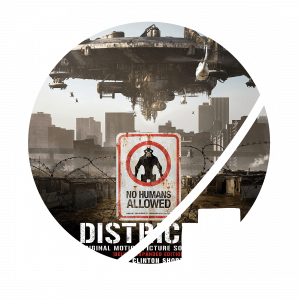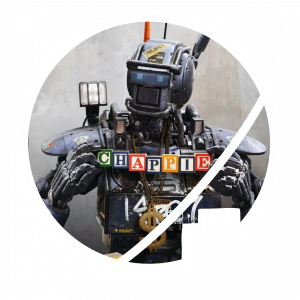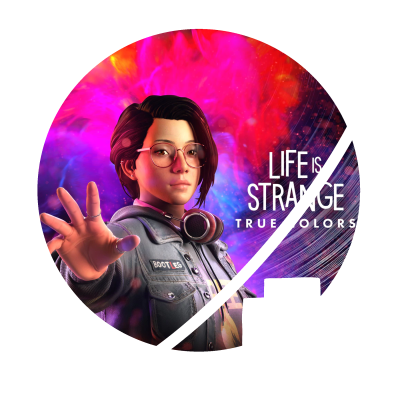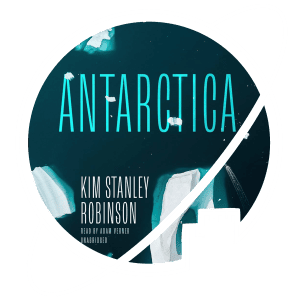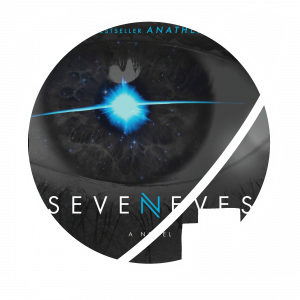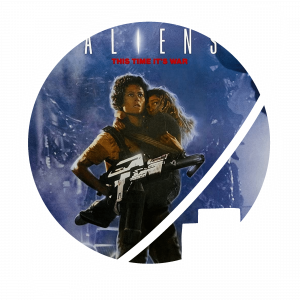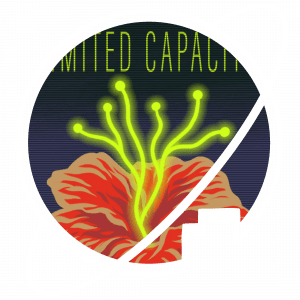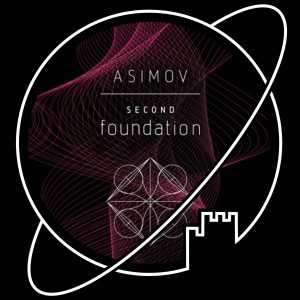Welcome to the Escape Velocity Collection!
We are an opinionated group of friends reviewing all sorts of fantasy and science fiction media. Don’t forget to get to know the curators and visit our curated Collection, where we discuss the stories that never cease to transport us to another world.
Will you escape with us?
LATEST POSTS:
Reviewed by:
- Video game eveloped by Bioware
- Released in 2011
- Platforms: PlayStation 3, Xbox 360, Microsoft Windows, macOS, Macintosh operating systems, Classic Mac OS
Dragon Age II follows the story of Hawke, a refugee from the Fifth Blight, and their rise to power, a journey spanning over a decade. After fleeing Ferelden, Hawke and their family have to build a new life in the city of Kirkwall. Though life as a refugee is hard enough, Hawke soon discovers that Kirkwall has problems of its own. The tensions between mages and templars are running high, and the presence of an army of Qunari also comes with some inevitable difficulties.
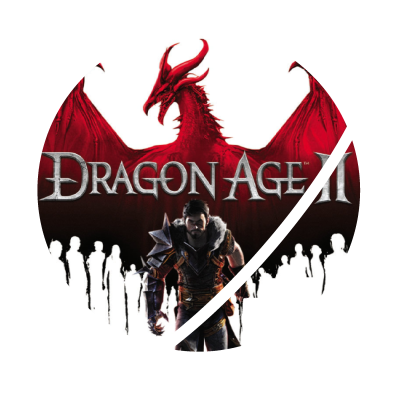

Dragon Age 2 is often seen as the lesser of this series but don’t let that deter you from playing it. First of all, you’re gonna want to play it to get the full story for when you move on to Dragon Age: Inquisition. But I think Dragon Age 2’s real problem is that the other two games are just too good.
This is, and I think many would agree with me, the funniest game in the series. You play as Hawke, and at each dialogue option, you are given the choice between a diplomatic, humorous and aggressive option. A word of advice: the humorous options are the best. This game features some quite dark themes, but Hawke is definitely the funniest protagonist of the series and the humour balances out the darkness quite well. That is, if you choose the funny dialogue options. I also very much recommend playing as female Hawke because her voice acting is phenomenal and to this day the only impression I can actually do.
This game features some great characters, as well as some characters I like a little less. Look, I usually love the generic white male love interests Bioware throws at me, but both Anders and Fenris are the worst and I hate them. I ended up romancing Isabela, who is also the worst but great, and I would have romanced Varric except Bioware hates me and won’t make that an option.
One of the things the game gets the most flak for is the environments. While Kirkwall is well designed, you never leave the city during the game. This might have been fine, if it weren’t for the fact that environments get constantly reused, so that at a certain point you’ve been in the same underground harbour about four times for different quests. People joke about how the game is told from Varric’s perspective, and he doesn’t care too much for the details, explaining why all levels look the same. The game even features one scene that is very clearly told by an unreliable narrator, which does support this idea. Still, it can detract a little from the experience.
If you’ve played Dragon Age: Origins and/or Dragon Age: Inquisition, you simply must play this game as well. I certainly wasn’t disappointed.

Although this game was heavily criticized (not entirely unjustified), I think it deserves much more love than it has actually gotten. The fact I give it 4,5 stars instead of 5 has purely to do with some clumsy game elements, such as the many reused maps and the random spawning of enemies (though I have to say Inquisition has provided an entertaining in-game explanation for both, relating to Varric’s unreliable narration).
As for the plot, I actually think DA2 has the best writing of all the Dragon Age games to date. Instead of the more classic ‘zero to hero fights evil’ narrative, Hawke’s story explores themes of a more realistic gray-and-gray morality and the challenges of choices that don’t have a clear cut answer. Most of the time, Hawke feels more like a protagonist that just tries their best (or not), than a real traditional hero. I felt like this was a very refreshing and interesting perspective. The rest of the cast is similarly complex. It should be noted, however, that the game never becomes too grim despite these elements, partly due to varied and well-applied humor. Another unique aspect is the division of the story in three acts, separated by significant time jumps. This allows for consequences to choices you wouldn’t otherwise have encountered.
I’ve replayed Dragon Age 2 several times, and expect to replay it again in the future. Even when I’m not playing, I at times find myself thinking of its themes and characters. That’s a good thing.
For those who are planning to play Dragon Age 2 for the first time, with the intention to play Dragon Age Inquisition thereafter, I would advise to at least buy and play the Legacy DLC, as it lays a foundation for some of the events in Inquisition.
Tagged:
- Movie directed by Neill Blomkamp
- Starring Matt Damon, Jodie Foster, Alice Braga, Sharlto Copley
- Released 2013
- Runtime: 109 minutes
In Neill Blomkamp’s action packed dystopian sci-fi movie, the people living in slums on a polluted earth enviously look up to Elysium, the space station retreat of the ultra-wealthy, were all their illnesses could be cured at the wave of a hand. After a work accident, Max da Costa, a factory labourer on probation for some crimes he did and some crimes he didn’t commit, joins forces with a local crime lord and human smuggler with an altruistic streak in order to get to Elysium and save himself – though he has to agree to one for-profit job first…

Sometimes you just want to sit down at the end of a long day and watch people in the future blow each other up. And at those times, good enough is good enough. Neill Blomkamp’s Elysium perfectly fits that bill. I wouldn’t say it’s worth inviting friends over to watch it together, but as a well-executed mindless sci-fi action blockbuster, it is more than passable.
In a sense that’s a pity, because we know Blomkamp can do better. I haven’t seen District 9 (Blomkamp’s much more favourably reviewed movie) in a long time, so a direct comparison between it and Elysium would be unfair, but I felt the earlier District 9 was the better of the two movies by a long shot. Similar themes (worth exploring!) run between the two movies, with the oppression of the ‘have not’s by the ‘haves’ being a focal point in both; I just felt that it was executed a bit ham-fisted in Elysium.
For me, that was the core issue: Elysium was let down mostly by its script (another let-down was Jodie Foster’s performance, but then, I didn’t feel she had a lot to work with). The script falls short in several ways: We don’t really know why our protagonist became a criminal and his childhood friend didn’t. There is no exploration of the political struggle for emancipation of Earth’s poor, or at least of the more sympathetic faction of the Elysium government. We don’t know why the antagonists are as evil as they are, and what they have to lose by allowing the protagonists to reach their goals. The ideas were cool , but the movie would have had to cut a lot of action scenes in order for the free up runtime to explore these more interesting issues.
What we are left with is a decent sci-fi, borderline cyberpunk, action spectacle. Action scenes and special effects are entertaining enough, but I found the movie faded from memory almost immediately after the credits started rolling. Elysium could have been thought-provoking, but ended up being eye candy and nothing more. Then again, sometimes, that is good enough.
See also:
- Book written by Susanna Clarke
- Published September 2004
In 19th century England, magicians who are capable of performing actual spells are a thing of the past. The only magicians that are left are ‘theoretical magicians’, who study magic and write long papers about it, but are incapable of performing the simplest spell. Until two magicians are discovered who are destined to bring magic back to England. Mr Norrel and his pupil Jonathan Strange soon become notorious practitioners of magic as they use their skills to aid in the war against Napoleon. But it soons becomes clear that they might be meddling with powers far beyond their abilities.
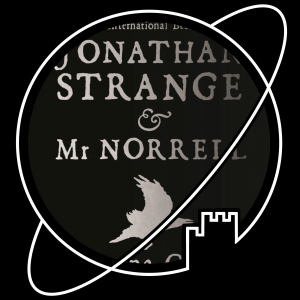

The audiobook of Jonathan Strange & Mr Norrell is over 30 hours long. I usually don’t mind a big book: if I enjoy a story I’d rather not finish it too soon. However, 30 hours is quite a task even for me.
After the first hour of listening I did not really get drawn into the story yet, but that happens. Longer books often need some time to get warmed up.
However, the next four hours I kept feeling quite similarly, at which point I started considering whether I should call it quits and decide this might not be the book for me. But, I had heard good things about it, and in general I am usually quite hesitant to put down a book once I’ve started it.
So I persisted, but by hour seven I still had not really found a good reason why I was reading this book. There was just so much detailed explanation about things I did not truly care about. Why did I need to know all this history of English magic? And why should I care if this magic was restored or not? The expansive footnotes definitely made things worse, and while in a physical book I could have skimmed these, the audioformat meant I had to sit through all of them. At this point the tempation to put the book down became quite strong.
But then, around hour ten, things slowly started to turn around. I suddenly found I did care about English magic and its restoration. The work I had put in getting to know the characters and their world made me feel connected to them despite their flaws and in some cases (deliberately) quite unlikable personalities.
From then on I slowly but steadily got drawn deeper and deeper into the world the book had painstakingly created. It became clear how the level of detail that had exasperated me in the first part of the book contributed to its atmosphere, making it feel more like historical fiction than like fantasy. Also, I just cannot resist any book that deals with the Fey and their realm.
It would be tempting to say that parts of this book could have been edited out in order to make it more accessible to a wider audience, but I don’t know if that would be possible without destroying the very thing that makes it unique. I think it might just be a case where you really have to put in the effort in order to get to the eventual payoff. But I am very glad that I persisted, and now that I’ve finished it… part of me wishes that it could have been even longer.
Tagged:
March 27, 2022

Collected on: March 27, 2022
- Movie directed by Guillermo del Toro
- Released in 2013
- Starring Idris Elba, Rinko Kikuchi, Charlie Hunnam
Ten years ago, the world was brutally attacked by a vicious sea monster. Soon after, another creature attacked. And another. The monsters kept coming.
To defend itself against the onslaught of these monsters (also called Kajiu), humanity started building giant robots to fight them. Each robot, called a “Jaeger” was controlled by two pilots.
When the movie starts, humankind has one last shot of finally destroying the kaiju once and for all. Will they succeed?
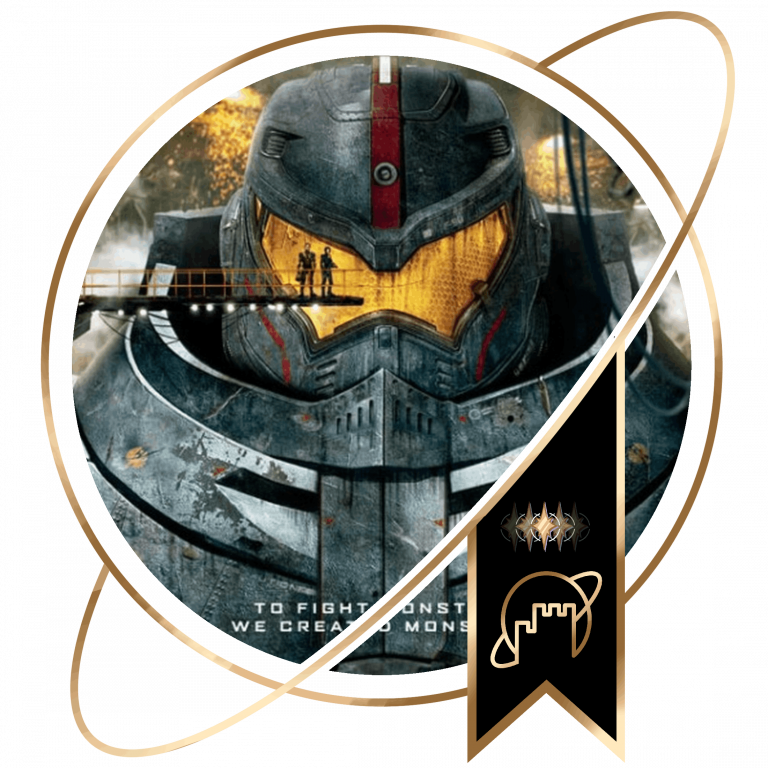
Robin: Welcome to this in-depth, spoiler-free discussion of the movie Pacific Rim, directed by Guillermo del Toro, which our curator Lotte has added to the Escape Velocity Collection, a series of items that we believe represent the absolute peak of what the speculative genre has to offer.
I challenged Lotte to defend her addition to the Collection – why should everyone hurry to drop down on their couch and watch this movie as soon as possible?
Introduction
If you ask me about my favourite movies, I will not hesitate to mention Pacific Rim. It goes without saying that I’ve wanted to add it to the collection from the moment we started this project.
I’ve been pestering Robin to watch Pacific Rim for… a while now. She never really responded with the appropriate enthusiasm to my recommendation, which I kind of get. If you’d explain the plot of Pacific Rim to me, I’d also be a little hesitant. Look, giant robots don’t sound that cool to me. I like things being destroyed in movies as much as the next gal, but before I watched this movie, I really didn’t think I’d enjoy watching giant robots doing the smashing. To my surprise, when I did end up watching the movie, I was instantly hooked.
Pacific Rim tells the story of a war between humanity and giant alien monsters (Kaiju). What do you do when giant monsters attack human cities? You build giant robots to fight them, of course! The movie follows two pilots of such “Jaegers”. Controlling the robots from the inside, they are the only thing left standing between humanity and the apocalypse.
Recently, a bunch of us read the Themis files. This book series revolves around a giant robot that gets controlled by humans from the inside. Sound familiar? Robin loved the Themis files, and at this point I was sure that she’d be able to appreciate Pacific Rim, too.
It’s true, Lotte has been telling me to watch this movie for maybe five or six years now. So why hadn’t I watched it until now? The main reason for my hesitancy was that action movies are just very much not my thing. In most cases the characters in these movies are as flat as they are unoriginal, while the entirety of their character development tends to be some predictable version of ‘handsome white boy gets the girl, the end’. I can imagine that this doesn’t bother people who mostly watch these movies for the action, but extended battle- or action scenes tend to bore me.
That said, when I finally caved and agreed to watch Pacific Rim with Lotte so that we could have this conversation about it, I was pleasantly surprised. The scale of the monsters and the robots is truly epic, so that even I was impressed by their clashes. I kind of wish I could have seen this movie on a cinema screen.
Lotte, how do you feel about action movies in general? It is a genre that you tend to enjoy?
What Makes Pacific Rim Different
I’ll be honest: much like you, I don’t usually like action movies. They often take themselves very seriously and especially in monster movies, it’s like… where’s the monsters? If you’re not willing to spend half your budget on CGI, you’re clearly doing something wrong. I’d say the only action movies I really do like, are the ones that are extremely destructive. And I definitely agree with you on wishing I’d seen Pacific Rim on the big screen. My biggest shame in life is actually that I promised myself that I would at least go see the sequel in cinemas and then just… didn’t. (having since seen the sequel, though, it turns out it wouldn’t have been worth it anyway)
I’m adding it to the collection because Pacific Rim knows what it wants to do, and does it extremely well. The central theme of the movie is Big Robots fighting Big Monsters. At no point do they compromise on telling that story. Even if you hated seeing interesting characters on screen, or you’re the kind of person who likes to point out “plot holes” (or, as I like to call it: opportunities to Think for Yourself) – you’d be hard pressed to complain about the quality of the special effects, and the astounding quantity of them.
The second reason – also the reason why I would recommend Pacific Rim to people who don’t usually go for action movies – is the fact that the characters are truly great. It’s interesting because I wouldn’t necessarily say these characters have “a lot” of depth, but they have just the right amount of depth for the story that’s being told, does that makes sense?
The Characters
Yes, they could have given the characters more depth, but I don’t really think that would have benefitted the movie. Mostly because this movie is clearly not meant to be a character-driven story, and so adding too much character drama would take away from its main purpose. However, do you think there are any missed opportunities when it comes to the choices that were made for the characters?
I mean, I would disagree with the statement that it’s not a character-driven story, actually. I really do believe it is. This movie would have been nothing without the relationship between Mako Mori and Stacker Pentecost. If you take that away, it becomes just another blockbuster. This can be seen in the sequel: there’s still Jaegers and Kaiju, but the story is missing in strong character dynamics.
But to answer your question. There’s been plenty of discussion about how Pacific Rim doesn’t pass the Bechdel test. There’s only one important woman in the movie, and not only does she not have a discussion that’s not about a man with another woman. No: she doesn’t talk to any other women AT ALL.
The problem for me is that while Mako is a great character, there were plenty of other characters that could easily have been women. While I love the current cast of the movie, you could replace Dr. Gottlieb or Tendo Choi with women and it would still make perfect sense. There’s no reason why there’s only one woman in the main cast of this movie.
Conclusion
- Video Game developed by Deck Nine
- Published by Square Enix
- Released in 2021
- Singleplayer narrative adventure game
- Platforms: Microsoft Windows, PlayStation 4, Playstation 5, Nintendo Switch, Xbox One
- Playing time: 10-17 hours
- Third main installment in the Life is Strange series.
Alex Chen leaves her foster care group to go live in the small town of Haven Springs with a brother she hasn’t seen for eight years. It’s a chance to start anew. That is, if she can keep her powers of empathy under control.
However, Alex soon discovers that Haven Springs might harbor some dark secrets. And her powers might be the only way to bring these mysteries to light…

Ironically, I have a strange relationship with the Life is Strange series. The first installment really made a strong impression on me. Sure, it had its flaws, but the characters and their story were heartfelt. The mystery and suspense were strong until the end. And, even though others might find this an controversial opinion, the choices felt meaningful.
I’ve yet to finish the second installment of the series, because I had trouble connecting with the meandering story. Life is Strange: Before the Storm I enjoyed, but somehow it made little impact on me, apart from the Farewell bonus episode.
On the whole, you’d say I’d consider this series a mixed success. Still, something about the core potential of this franchise, keeps drawing me back. People with extraordinary gifts, who live ordinary lives with (at times painfully) relatable ups and downs.
Life is Strange: True Colors’ protagonist, a geeky introvert with the power of empathy, immediately clicked with me. A character who is troubled by her past, desperately looking for a place (and people) to belong. I think this central theme worked pretty well, combined with the likeable cast of support characters. Additionally, this game really excelled at providing feel-good slice of life scenes.
When it comes to Alex’s power of empathy, though, I felt its potential wasn’t fully used. The accompanying game mechanics were clever, but the power lacked significant impact on the plot and the important choices. I would have loved to see a little more conflict in that regard.
The plot of Life is Strange: True Colors is not particularly strong or unique. In fact, it is loosely the same plot as the plot in the first Life is Strange game. The pacing is just a little bit weirder, and the mystery is a lot more straightforward. As can be deduced from the former alinea, the focus is on the characters and their growth. I could appreciate this, though I would say that the final episode fell somewhat short in providing satisfying closure in both areas.
All in all, I really enjoyed the game. It was a perfect game to help me through the dark winter days. I just would have liked it to be a bit longer, so that there would have been more room to polish the different aspects of the story. I cared for the characters, however, and was sad to let them go at the end (luckily, there was a Steph DLC). Also, I repeatedly returned to play the Arkanoid minigame…hehe.
Tagged:
- Book written by Neal Stephenson
- Published 27 October 2021
- Standalone
Alongside representatives from low-lying places all around the world, the Queen of the Netherlands is invited to a secret climate conference where an extravagant Texas oil millionaire reveals his plans to save the earth from climate change and rising sea-levels through a giant geo engineering project with a global impact and momentous geopolitical consequences.
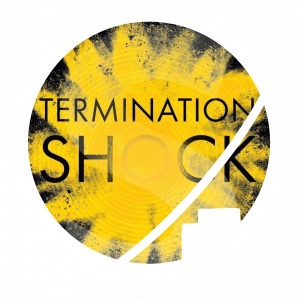

First of all, let me say that I think this book has a great premise: it explores the geopolitical implications of global scale geoengineering to counteract climate change only a single generation into our future. That said, while it contains a number of thought-provoking ideas, I think it is let down by its execution somewhat.
This book is remarkable in that it’s middle section is its best. It took me a good eight hours of listening to character introduction and set up, about a third into the book, before the plot started progressing anywhere. While some of that introductory listening was enjoyable, the majority felt entirely superfluous and should probably have been scrapped. Then when the plot gets moving, it progressively moves from plausible to improbable to borderline unbelievable, until by the climax, I was raising eyebrows every other line. I’m not sure how I would have liked the book to end, but this wasn’t it.
The book’s pace is dragged down by Stephenson’s need to describe pretty much everything in detail, whether relevant or not – whether it is character background, the way the big climate device works, a hitchhiking trip to the Himalayas, or the way a certain character stores the spare parts for his drones. It is not that these are all irrelevant, and some of these explanations are interesting vignettes of a world that could be. But Stephenson does not seem to have mastered the art of conveying this kind of information or character depth without breaking the pace of the story.
In addition, the book oozes a need to be relevant: be it literal internet meme references or mentions of Uyghur repression, deepfakes, the storming of the Capitol, or even the Khashoggi killing, the book is constantly showing off how well the writer followed the news the past two years – in ways that seem to make no sense to characters supposedly living some three decades into the future.
As a Dutch person, there is some extra fun in assessing how well Stephenson read up on his main character, who happens to be the queen of the Netherlands. At times he is remarkably well researched, at others he is hilariously wrong (Allow me to digress here. The queen lives in Huis ten Bosch, which Stephenson describes as ‘’surrounded by ancient forest”. It’s in the middle of the Hague. It’s a park. He’ clearly not been there, but you wonder how he made the mistake. I googled it, and the first hit describes the park as having ‘’eeuwenoude bomen” (ancient, literally, ‘centuries-old’ trees. Probably two centuries at most, and no-one in their right mind in the Netherlands would describe that as ‘ancient forest’, but you just know Stephenson fell for that). What is more, he has his Dutch characters do the very American thing of constantly assessing people, or having them be assessed, by their race – not saying that the Netherlands is never racist, but I feel people with quarter-Indonesian descent are so common here as to be completely unremarkable.
At the end of the day, there are some entertaining scenes and conversation starters in this book, and as a Dutch reader there might be a few more moments of merriment than for readers from elsewhere. But overall I wasn’t particularly impressed with Termination Shock. Especially given its length and how much of a slog the first third of the book was, I would recommend you find something else to read.
Tagged:

Review: Dragon Age II – Bioware
Dragon Age II follows the story of Hawke, a refugee from the Fifth Blight, and their rise to power, a journey spanning over a decade.

Review: Elysium – Neill Blomkamp
The people living in slums on a polluted earth enviously look up to Elysium, the space station retreat of the ultra-wealthy, were all their illnesses could be cured at the wave of a hand. After a work accident, Max da Costa, a factory labourer on probation, joins forces with a smuggler with an altruistic streak in order to get to Elysium and save himself.

Review: Jonathan Strange & Mr Norrell – Susanna Clarke
In 19th century England, magicians who are capable of performing actual spells are a thing of the past. Until two magicians are discovered who are destined to bring magic back to England.
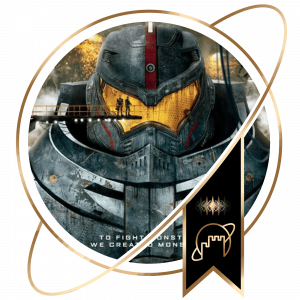
Collected: Pacific Rim by Guillermo del Toro
COLLECTION: When giant monsters attack planet earth, what else can you do but build giant robots to fight them? This is humanity’s very last stand. Will we succeed?
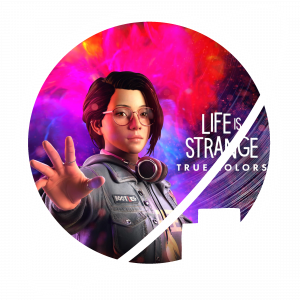
Review: Life is Strange: True Colors – Deck Nine
Review of the video game Life is Strange: True Colors, developed by Deck Nine.
Alex Chen leaves her foster care group to go live in the small town of Haven Springs with a brother she hasn’t seen for eight years. It’s a chance to start anew. That is, if she can keep her powers of empathy under control.

Review: Termination Shock – Neal Stephenson
The Queen of the Netherlands is invited to a secret climate conference where an extravagant Texas oil millionaire reveals his plans to save the earth from climate change and rising sea levels.










